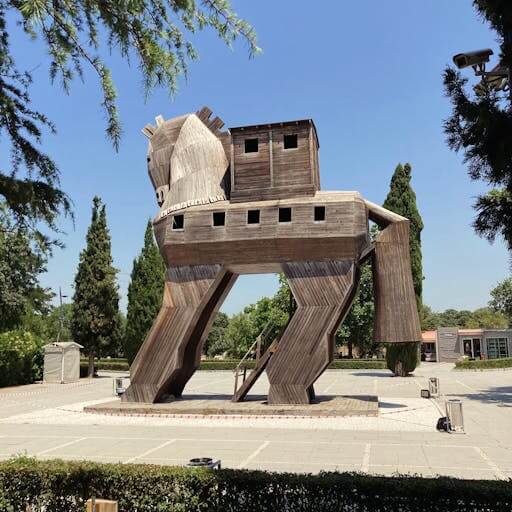Historical and Mythological Context
The legendary Trojan War, traditionally dated to the late Bronze Age (circa 12th century BCE), represents a pivotal moment in ancient Mediterranean geopolitical dynamics. At the intersection of mythological narrative and archaeological evidence, this conflict embodied the complex cultural interactions between Aegean civilizations, particularly the Mycenaean Greeks and the Anatolian city-states.
The Protagonist: Cassandra of Troy
Cassandra, daughter of King Priam and Queen Hecuba, emerged as a profound embodiment of tragic complexity within this historical milieu. Her unique mythological status—blessed with prophetic abilities yet cursed to have her prophecies perpetually disbelieved—positioned her at the nexus of divine intervention and human agency.
The Prophetic Burden
The divine curse bestowed upon Cassandra by Apollo represented more than a mere narrative device. It symbolized the broader existential tensions between individual perception and collective destiny, a recurring motif in Bronze Age mythological constructs.
Cassandra’s prophetic visions revealed the inevitable destruction of Troy with excruciating clarity. She foresaw:
- The strategic vulnerabilities of the city’s defensive structures
- The impending Greek military strategems
- The ultimate fate of her royal lineage
- The comprehensive societal collapse awaiting her civilization
Geopolitical and Cultural Tensions
The conflict surrounding Troy transcended simple binary narratives of heroism and conquest. It represented a complex interaction of:
- Intricate diplomatic networks
- Cultural exchange mechanisms
- Technological and maritime capabilities
- Religious and mythological belief systems
The Existential Dilemma
Cassandra’s internal conflict emerged from multiple interconnected dimensions:
- Familial loyalty to the Trojan royal lineage
- Her prophetic understanding of the city’s inevitable doom
- The potential for individual intervention against predetermined fate
- The moral and ethical complexities of potential betrayal
Her strategic position within the royal household provided unique insights into both Trojan defensive preparations and the potential vulnerabilities that could determine the conflict’s trajectory.
The Prophecy’s Weight
The prophetic vision represented a profound psychological burden. Cassandra understood that her knowledge could potentially alter Troy’s fate, yet her divine curse ensured that no one would believe her warnings. This created an intricate psychological landscape of frustrated agency and predetermined tragedy.
Narrative Trajectory
As the Greek armies, led by figures like Agamemnon, Achilles, and Odysseus, approached Troy’s formidable walls, Cassandra confronted her most critical existential moment. Her potential actions could:
- Potentially warn her people and modify their defensive strategy
- Risk complete familial and societal ostracization
- Challenge the predetermined mythological narrative
The strategic and human complexities of her decision transcended simple moral binaries, reflecting the nuanced nature of Bronze Age diplomatic and cultural interactions.
Mythological and Historical Synthesis
Cassandra’s narrative represents a profound exploration of:
- Individual agency within predetermined historical trajectories
- The psychological complexities of prophetic knowledge
- Cultural and military interactions in the late Bronze Age Mediterranean world
Broader Implications
Her story illuminates fundamental questions about:
- The nature of fate and human choice
- Cultural resilience in the face of existential threats
- The psychological dimensions of prophetic knowledge
The Trojan War, as represented through Cassandra’s perspective, emerges not merely as a military conflict but as a complex cultural metamorphosis—a moment where civilizational trajectories were fundamentally recalibrated.
Epilogue: The Prophetic Legacy
Cassandra’s ultimate fate—her inability to alter Troy’s destiny despite her profound insights—serves as a poignant metaphor for the broader human experience of confronting overwhelming historical forces.
Her narrative transcends the specific historical moment, offering a timeless meditation on knowledge, power, and the complex relationship between individual agency and collective destiny.
The story of Cassandra represents a nuanced exploration of human potential and limitation, set against the backdrop of one of ancient history’s most profound and enduring mythological narratives.

